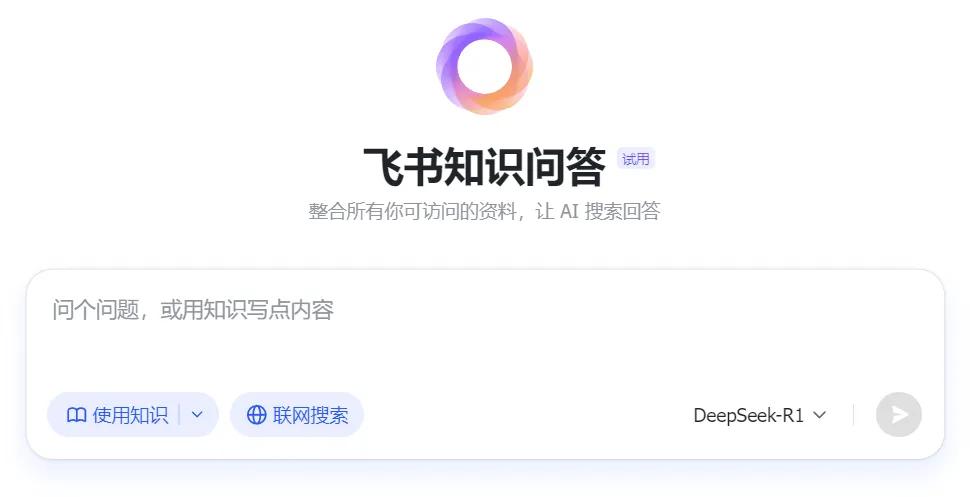AI Frenzy Hits Agent Development: Tencent and ByteDance Compete for Dominance
![]() 06/05 2025
06/05 2025
![]() 573
573

After a year of intense competition, will ByteDance's Volcano Engine introduce another industry-shaking innovation?
Written by | Lan Dong Business, Zhao Weiwei
While the much-anticipated DeepSeek R2 model is still in the wings, DeepSeek launched its upgraded R1 version on May 29.
Tencent swiftly responded, integrating the latest DeepSeek R1-0528 version into its Tencent Yuebao, ima, Sogou Input Method, QQ Browser, and other products within a day. This substantial upgrade, after a five-month hiatus, underscores Tencent's commitment to prioritizing DeepSeek, boasting comprehensive enhancements across multiple capabilities.
Just an hour after Tencent's announcement, ByteDance's Volcano Engine announced its integration of DeepSeek R1-0528, simultaneously launching a 50% discount campaign for new customers.
The upgraded R1 model boasts enhanced deep thinking capabilities. DeepSeek claims to have achieved top scores among domestic models in benchmarks such as mathematics, programming, and general logic, with overall performance nearing that of top international models like GPT-o3 and Gemini-2.5-Pro. Additionally, it has further optimized hallucination reduction, creative writing, and tool invocation.
Since DeepSeek's rise, integrating it has become the norm for domestic internet application products. Tencent, ByteDance, and Alibaba have all introduced large models competitive with R1, yet DeepSeek's brilliance remains unparalleled. On DeepSeek's overseas social media, users frequently express their anticipation for the next-generation R2 model, chanting, "We want R2."
Even before DeepSeek's updated model is released, domestic cloud service providers continue to vie for supremacy.
Particularly notable are Tencent and ByteDance. At Tencent Cloud's AI Industry Application Summit on May 21, a key development was the upgrade of the enterprise-facing large model knowledge base to an Agent development platform, mirroring ByteDance's AI application development platform Coze, both aiming to assist enterprises in implementing native AI Agent systems.
Furthermore, on June 11, Volcano Engine's 2025 Momentum Conference will showcase the comprehensive upgrade of the Doudou large model family and AI implementations in finance, automotive, and healthcare. Last year's conference sparked a price war among large models, driving prices into the "cent era" and prompting domestic large model cloud providers to slash their prices. Will Volcano Engine unveil another groundbreaking innovation this time?
The competition between the two in their respective cloud service markets is becoming increasingly evident. Over the past month, major automotive industry customers previously aligned with Tencent Cloud, such as Yuanrong Qixing, BMW, Dongfeng Motor, and FAW Besturn, have partnered with ByteDance's Volcano Engine to advance AI marketing and implement Doudou large models in human-vehicle interaction.
Will Tencent, with its strategic aim to "accelerate AI iteration," align with ByteDance?
Tencent Targets Agent Development
After fully integrating the DeepSeek large model and reaping its benefits, what is Tencent AI's next strategic move?
"We propose four accelerations for AI implementation: accelerating large model innovation, Agent application, knowledge base construction, and infrastructure upgrades, to drive AI technology into every industry and individual's life," said Tang Daosheng, CEO of Tencent Cloud and Smart Industries Group, at the Tencent Cloud AI Industry Application Summit.
Regarding Agents, Tencent will soon launch an AI College Entrance Exam Agent. Previously, QQ Browser introduced Qbot, an Agent powered by Tencent's Hybrid and DeepSeek models, capable of assisting users with tasks such as file format conversion, application updates, and downloads.
For B-end users, Tencent's large model knowledge engine has been upgraded to an "Agent Development Platform," helping enterprises build Agent systems. Users can enable Agents to independently disassemble tasks, plan paths, actively select and invoke tools, thereby developing Agents capable of autonomously completing various tasks. On the Agent front, ByteDance launched the AI application development platform Coze (Chinese name: Kouzi) last year, helping B-end enterprises build their own AI applications.
In terms of knowledge base construction, Tencent already offers ima for C-end users and has now released the "Tencent Lexiang Enterprise AI Knowledge Base" for B-end users, aiming to enhance AI's management and application of enterprise knowledge.
Knowledge base Q&A capabilities are currently one of the most effective ways large models can enhance enterprises. Tang Daosheng cited the example of the robot company Ecovacs, which utilized the Lexiang Knowledge Base to create an AI assistant, resulting in double-digit improvements in national store efficiency and millions of yuan saved annually in operating costs.
Developing Agents and constructing knowledge bases are currently established commercial directions for AI applications, and Tencent's moves in these areas are clear attempts to align with ByteDance in AI implementations.

On the same day as the Tencent Cloud AI Industry Application Summit, ByteDance's Feishu also launched "Feishu Knowledge Q&A," essentially an AI knowledge base tool integrated with the full-fledged DeepSeek R1 large model. Users can invoke documents, messages, files, and other information within their enterprise through Q&A to generate more accurate and reliable answers in work scenarios.
Five days later, Enterprise WeChat upgraded its "Intelligent Robot," with new capabilities comparable to those of "Feishu Knowledge Q&A."
Enterprise WeChat users can find answers to work-related questions through the "Intelligent Robot," which is based on internal materials uploaded by the enterprise, combined with the deep thinking capabilities of large models like DeepSeek and Hybrid. It supports adding online documents, WeDrive folders, and other knowledge sets while also connecting with business systems through API interfaces.
From a product functionality perspective, Enterprise WeChat's "Intelligent Robot" and Feishu's "Knowledge Q&A" share a common goal: only by accessing private enterprise data within a secure scope can the capabilities of Agents truly be enhanced.
The difference lies in that Enterprise WeChat enhances its existing Agent functionality without showcasing integration with products like Tencent Meeting, whereas Feishu introduces a new Q&A feature within its product, allowing one-click access and deep integration with knowledge bases, messages, and notes.
Of course, Feishu's "Knowledge Q&A" is still in beta, and Enterprise WeChat's "Intelligent Robot" is still far from being a true Agent.
ByteDance Enters Tencent's Social Circle
Tencent's greatest expectation for its Agents lies with WeChat.
During this year's first-quarter earnings call, Tencent President Martin Lau mentioned that Tencent has the opportunity to create a unique Agent for WeChat, deeply connecting it with social relationships, communications, content ecosystems, and mini-programs within the WeChat ecosystem. "Compared to other general Agents, this will be an extremely unique existence and our differentiated core product advantage."
There is significant anticipation for this move as Tencent Yuebao, ima, and other domestic vendors' general Agents essentially follow the same path and capabilities, making differentiation challenging. As AI becomes capable of handling increasingly complex tasks, only Agents integrated with Tencent's unique strengths can establish a leading position.
Therefore, Tencent spares no effort in AI development. In the first quarter of 2025, its capital expenditure was 27.48 billion yuan, a year-on-year surge of 91%, primarily used for AI computing infrastructure (such as GPU procurement) and native AI product development.
On the other hand, ByteDance shares a consensus with Tencent on the Agent development path, pursuing both general and vertical approaches.
In April this year, Volcano Engine President Tan Dai mentioned ByteDance's outlook on the Agent market, stating that for AI to truly revolutionize various industries, Agents are the necessary path; otherwise, AI will struggle to generate significant social and economic value.
Currently, Agents are categorized into vertical and general types. Vertical Agents, such as Volcano Engine's Data Agent, focus on data analysis and intelligent marketing. The general Agent approach allows developers and enterprises to more easily create their own Agents, with Volcano Engine introducing solutions like OS Agent.
In Tan Dai's view, the definition of Agents will become clearer this year, akin to the different levels of autonomy in autonomous driving (L1-L4). Many Agents are currently at the L1 level, but true implementation may require reaching L2++ or above.
Therefore, 2025 has been dubbed the first year of AI Agents, essentially hoping that Agents will bring genuine change to the industry. As the novelty of large models fades, more practical Agents can drive higher-frequency usage demands. Only Agents with sustained usage value can provide cloud providers with a stable and profitable commercial path.
Which industries have truly implemented Agents under Tencent and ByteDance's respective cloud service systems?
From the agendas of the Volcano Engine Momentum Conference and Tencent Cloud AI Industry Application Summit, it is evident that Tencent focuses on smart healthcare, smart education, collaborative office, and energy manufacturing, while ByteDance's industry-specific sessions include finance, automotive, collaborative office, and healthcare. The industries they both compete in include healthcare, manufacturing, and collaborative office.
Particularly noteworthy is the automotive industry, the largest application scenario for AI implementation, making it a crucial battleground for both Tencent and ByteDance.
Both parties are striving to deploy large models within automotive manufacturers, continuously expanding their reach. Volcano Engine has established an automotive large model ecosystem alliance with a total of 25 manufacturers, including FAW Hongqi, BAIC, GAC, Geely, and Great Wall. Tencent's smart mobility service layout began earlier and now boasts over 100 customers, including BYD, Changan Automobile, Bosch China, and Yuanrong Qixing.
The chairman of Changan Automobile once mentioned that the cooperation between Changan Automobile and Tencent began in 2018, jointly creating a digital cockpit integrating WeChat. Now, they are jointly developing an industry-leading AI Agent. Wu Yunsheng, vice president of Tencent Cloud, also mentioned that customers in the automotive industry use Agents for after-sales knowledge support, self-diagnosis of faults, and other services.
However, this does not prevent Changan Automobile, a long-standing Tencent partner, from also becoming a customer of Volcano Engine.
At the Shanghai Auto Show in April this year, Changan Mazda unveiled its strategic new energy model EZ-60, the first Changan Mazda model equipped with the Doudou large model. It boasts that with just voice commands, the Doudou AI Assistant can instantly invoke over 1,700 functions in the car. More importantly, the two parties have reached a deep cooperation and will continue to promote the application of the Doudou large model in vehicles.
A smoother implementation of smart cockpits, navigation, and service systems represents the largest scenario for AI applications in the automotive industry. As Yuanrong Qixing, BMW, Dongfeng Motor, FAW Besturn, and an increasing number of automotive customers join Volcano Engine's cooperation camp, Tencent Cloud will need to provide more efficient and cost-effective computing solutions to retain its existing customers.







